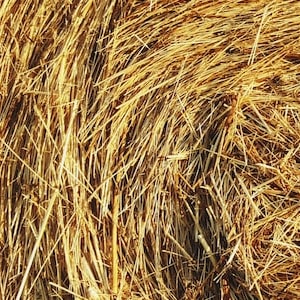draw the short straw: Idiom Meaning and Origin
What does ‘draw the short straw’ mean?
The idiom "draw the short straw" means to be chosen or assigned for an undesirable task or outcome, typically due to bad luck or random selection.

Idiom Explorer
Meaning: When faced with a difficult situation or a shortage of resources, the phrase "in a pinch" means to manage or get by, even though it may not be the ideal solution.
The idiom "in a bind" means to be in a difficult or challenging situation where there are not many options or solutions available.
The idiom "have someone by the short hairs" means to have someone in a position of complete control or power, making them unable to escape or avoid a certain situation or demand.
The idiom "grasp at straws" means to make a desperate attempt or effort when facing a difficult or hopeless situation, often by using any available option or possibility, no matter how unlikely or weak it may be.
The idiom "draw the long bow" means to exaggerate or stretch the truth excessively. It is often used to describe someone who tells implausible or unbelievable stories.
The idiom "draw the line" means to set a limit or establish a boundary beyond which one is unwilling to go or accept.
The idiom "draw stumps" means to end or finish an activity or an event abruptly.
The idiom "draw one's last breath" means to die or to take one's final breath before passing away.
The idiom "draw off" means to remove or extract a liquid or substance from a container or source. It can also refer to diverting someone's attention or focus away from something.
Unfortunate Selection
"Draw the short straw" is a widely used idiom in English-speaking countries, especially in the United States. This expression is commonly used to describe a situation where someone is chosen or assigned a task, role, or outcome that is undesirable or burdensome. It conveys a sense of bad luck or unfortunate circumstances for the person involved.
The origin of this idiom is uncertain, but there are several theories that shed light on its possible roots. One theory suggests that it comes from the practice of drawing straws. In this method, individuals would draw from a bundle of straws of different lengths, with the person who drew the shortest straw being assigned an unfavorable outcome. This decision-making process was often used to determine who would perform an unpleasant task or go first in a game or competition.
Another theory proposes that the idiom may have originated from the practice of drawing lots or sticks. In this scenario, participants would draw from a collection of sticks or lots of various sizes, and the person who drew the shortest stick or lot would face an unfavorable consequence. This method of decision-making was commonly employed when fairness or impartiality was essential.
The exact origin of the idiom remains unclear, but it has been in use since at least 1935, according to the earliest recorded instance found in The Times newspaper. Over time, "draw the short straw" has become a familiar expression in everyday conversations, as well as in written materials like newspaper articles and literature. It resonates with people because it effectively captures the experience of being assigned an undesirable task or outcome.
This idiom can be related to other idioms such as "at a pinch", "draw the line", "draw stumps", and "grasp at straws." In each case, these idioms convey a different aspect of making choices or facing unfavorable circumstances. "At a pinch" suggests that someone is willing to accept a less-than-ideal choice or option due to limited alternatives. "Draw the line" indicates setting a limit or boundary beyond which one is unwilling to go. "Draw stumps" refers to the act of ending or concluding something, often abruptly. "Grasp at straws" implies that someone is desperately seeking a solution or hope in a difficult situation.
Despite its straightforward meaning, "draw the short straw" allows for interpretation and personal experiences. Its continued usage reflects its relevance across different situations and its ability to convey the shared experience of undesired outcomes. This idiom has become an integral part of the English language, serving as a linguistic tool for expressing misfortune or unenviable circumstances.
Example usage
Examples of how the idiom "draw the short straw" can be used in a sentence:
- She always seems to draw the short straw and gets stuck with all the boring tasks.
- When it came to choosing roommates, I drew the short straw and ended up with the smallest bedroom.
- After drawing the short straw, he had to stay late at the office while everyone else went home early.
More "Unfortunate" idioms



